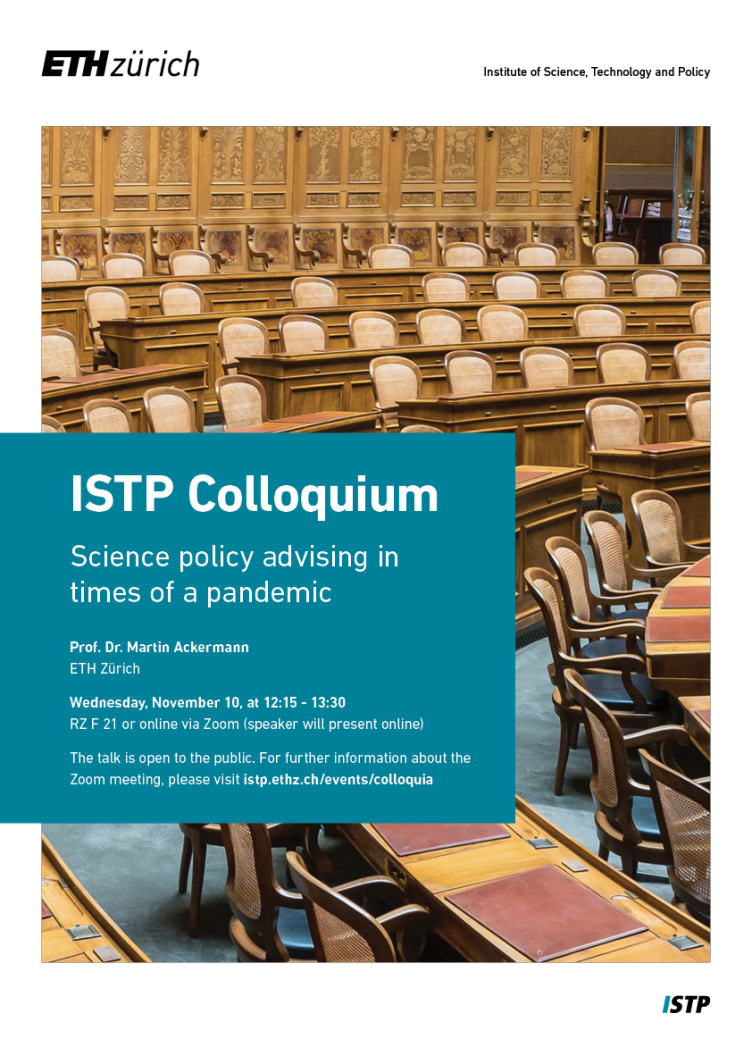Colloquium: Prof. Martin Ackermann
Wednesday, Nov 10, 2021, at 12.15 - 13.30
Room RZ F 21 or Online, Zoom | Sign up here
Science policy advising in times of a pandemic

The COVID-19 pandemic has put a spotlight on how science interacts with policy-making and with the society. It has shown how science can support political decision making and help find solutions, and has also revealed how tensions can arise between politics and science. I will report from my experiences in science policy advising during the COVID-19 pandemic in Switzerland. As a newcomer to the science policy interface, I was heading the Swiss COVID science task force for one year, until August 2021. Compared to similar groups in other countries, the Swiss task force was broad and large – covering a wide range of disciplines, and since most disciplines were represented with several experts, consisting of almost eighty scientists. This structure allowed addressing the impacts of the pandemic on society in an interdisciplinary manner, but also entailed difficulties of coordination and communication. I will summarize the challenges that we initially faced in the dialogue with politics and the administration, problems of mutual trust, mutual understanding, and a clear view on the different roles. Then I will describe how these problems could be solved, and discuss whether we can learn from these experiences for future interactions between science, policy and the society.
About Prof. Dr. Martin Ackermann
Martin Ackermann has been SNF Professor at ETH Zurich since 2006, Associate Professor since August 2008 and Full Professor of Microbial Systems Ecology since 2015.
Martin Ackermann was born in Schwyz in 1971. He studied Biology at the University of Basel and did his PhD with Urs Jenal and Steve Stearns in Basel on aging in bacteria. After his PhD he worked for two years as a postdoc with Lin Chao at UC San Diego. In 2004 he joined Sebastian Bonhoeffer's group at ETH Zurich.
The group of Martin Ackermann is working on fundamental questions on the ecology and evolution of bacteria: on interactions within and between species, on how bacteria cope with ever-changing environments and how the properties and functions of microbial communities emerge from the activities of individual cells and interactions between them. The group often works at the level of single cells, and asks how this perspective provides insights that could not be obtained by population experiments. It aims to develop basic principles with model systems in the laboratory, and then to test these principles in more natural situations. The ultimate goal is to further our understanding of the biology of bacteria in nature (including in associations with hosts), and to also provide insights that are of practical use for controlling and harnessing bacterial activities.